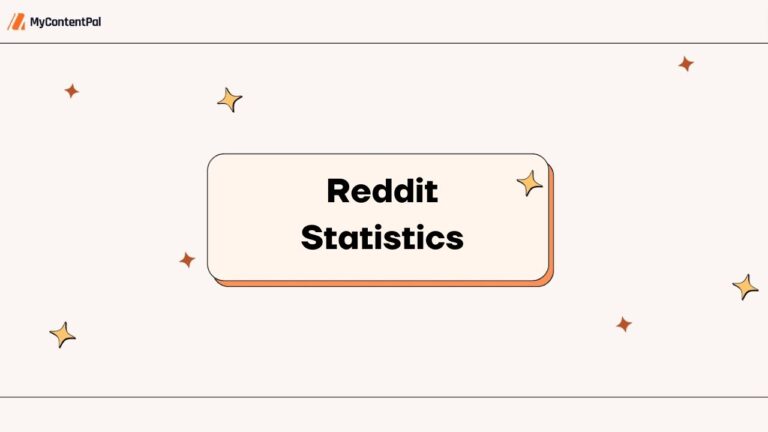Struggling to make your writing come across as authentically Australian? All it takes is a couple of spelling mistakes, and your readers will know you’re not ‘true blue’ (aka. genuine).
In this article, we’ll cover some of the intricacies and common mistakes writers make when writing for an Australian audience. Let’s dig a little deeper to uncover the specifics of Australian English, or rather, Aussie English.
From the UK to “Straya”: How Australian English Evolved
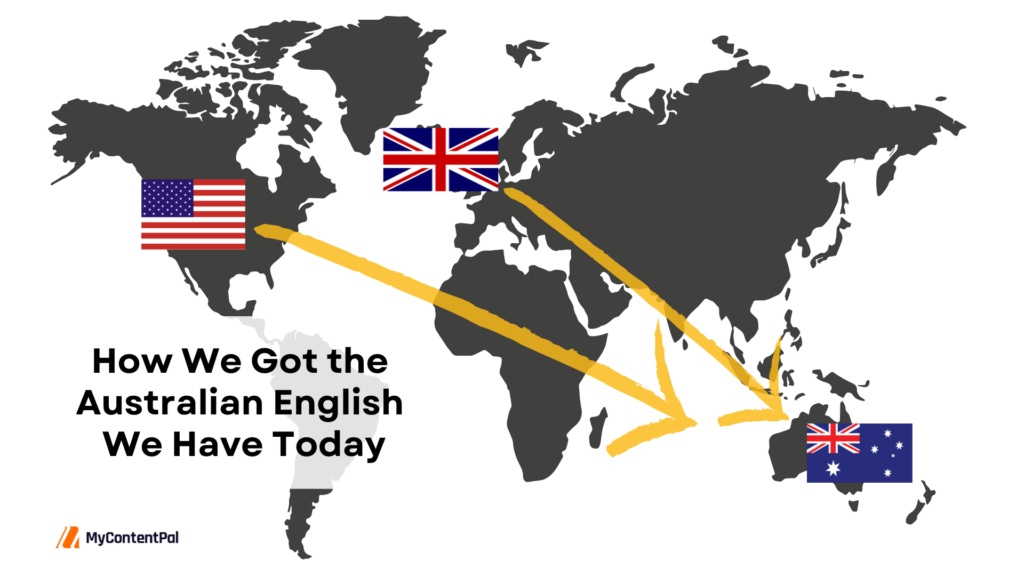
Australian English takes root in British English. But, as with many English-speaking countries, the language has diverged over generations. Within the UK, there are hundreds of different English dialects and regional variations.
When these were thrown into the melting pot, it created the perfect environment for a new distinct dialect that is Australian English.
At the turn of the 20th century, an increasing American influence came to Australia, which had some influence on the English language. British and American English have both impacted the evolution of Australian English to what it is today.
However, it is now an official English language variation, and the Macquarie Dictionary is the standard authority on Australian English.
The range of quirky vocabulary, easily misinterpreted phrases, and spelling differences are what make Australian English fascinating to many. So, let’s start with the spelling differences.
Subtle Spelling Differences
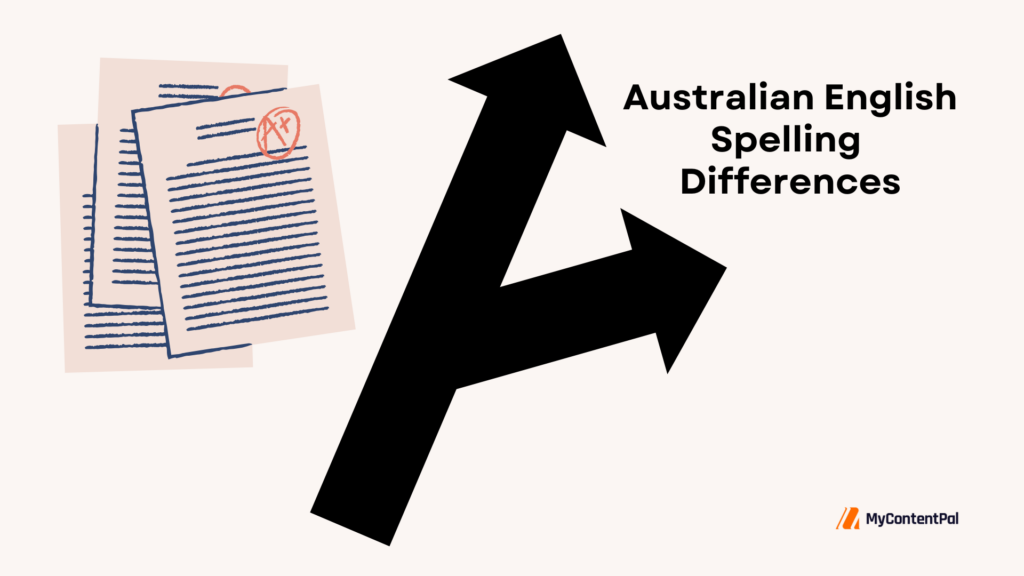
In general, Australian English spelling aligns mostly with British English words. We’ll cover the major differences that will catch you out.
The main difference noted with suffixes
French-based words are one point of difference where the British spelling is correct, but there are other cases to pay attention to:
| American English | British English | Australian English |
|---|---|---|
| favor | favour | favour |
| behavior | behaviour | behaviour |
| color | colour | colour |
| center | centre | centre |
| meter | metre | metre |
| kilometer | kilometre | kilometre |
| apologize | apologise | apologise |
| analyze | analyse | analyse |
| optimize | optimise | optimise |
| defence | defense | defense |
| offence | offense | offense |
It’s also worth noting that the word “practice” can be spelled two ways in Australia – “practice” used as a noun and “practise” as a verb.
The double consonant
In addition, the double consonant “ll” is used in suffixes in Australian English but not American English, yet for some words, Australians stick to a single consonant “l”.
| American English | British English | Australian English |
|---|---|---|
| canceled | cancelled | cancelled |
| traveling | travelling | travelling |
| skillful | skilful | skilful |
| willfull | wilful | wilful |
Exceptions to the rule
Although Australian spelling tends to follow British conventions, this isn’t always the case.
The word “shall” is often used in British English, but Australian usage of the word is restricted to legal documentation or other formal documents.
Here are some of the rare exceptions where Australian and American English share similarities. Words ending in “mme” and “eable” in British English are generally not accepted in American and Australian English. In this case, Australians favor the American spelling.
| American English | British English | Australian English |
|---|---|---|
| program | programme | program |
| kilogram | kilogramme | kilogram |
| livable | liveable | livable |
| sizable | sizeable | sizable |
The differences when writing Australian English don’t end there. There are also some key distinctions when it comes to grammar and punctuation.
(Mostly) British English Grammar and Punctuation
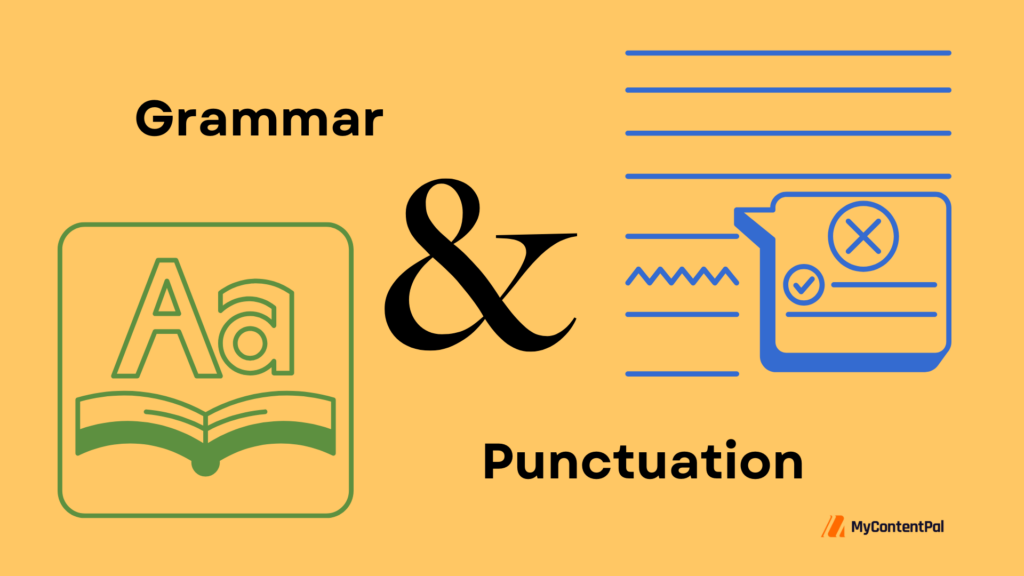
Australians aren’t known to be sticklers for anything proper, but there are a few grammar and punctuation specifics to note.
Some rules to remember
Australian English grammar and punctuation rules that are worth remembering:
- Americans refer to opening hours as “Monday through Friday”, while Australians write this as “Monday to Friday“.
- The verb forms of “have” and “take” are used differently in America compared to Australia. For example, an American will “take a shower”, and an Australian will “have a shower”.
- Prepositions are used before days in Australian English but not in American English. For example, “she is hiking on Saturday” (Aus) or “she is hiking Saturday” (Am).
- The English will use the term “at the weekend” when describing weekend plans; however, Australians will write this as “on the weekend”.
Key grammatical and punctuation differences
Three key grammatical and punctuation differences exist in Australian English: collective nouns, the serial comma, and quotation marks.
- Collective nouns are singular in Australia. For example, “the team was winning” is used in Australia as opposed to “the team were winning“.
- The serial comma or Oxford comma that precedes “and” in a list is generally not used in Australian English. Officially though, it can be used to prevent ambiguity in a sentence.
- In Australia, single quotation marks are used unless when writing a quote within a quote. For example, the correct use of quotation marks would be: ‘The girl told me “he always surfs at lunchtime”, so I’m going to the beach.’
When writing for an Australian audience, spelling, grammar, and punctuation are all very important. But, it’s equally as important to use correct Australian English vocabulary (pronunciation is another thing entirely).
Units of Measurement
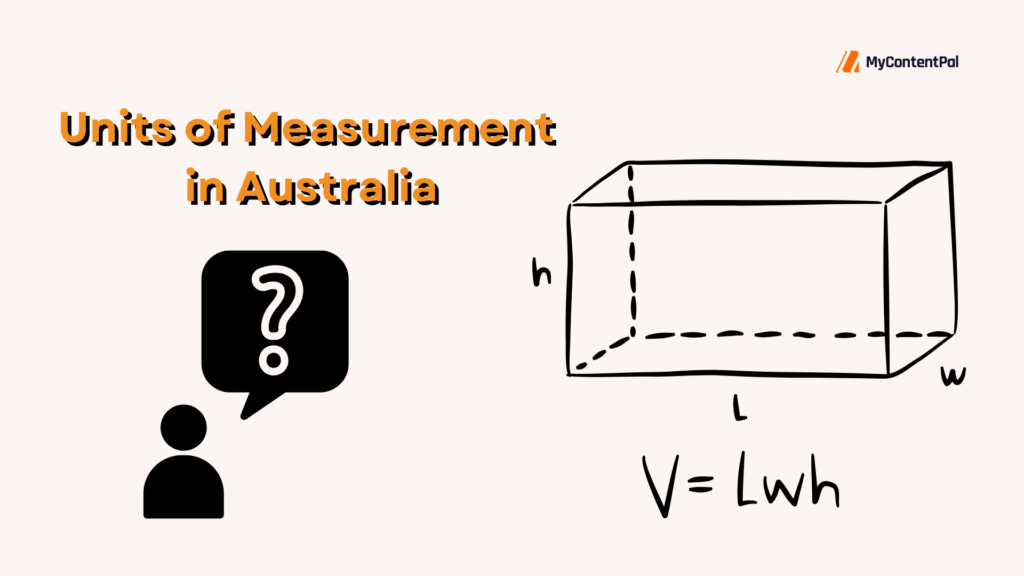
Australians smoothly transitioned from the imperial to the metric system in the 70’s. Americans, however, will use everything but the metric system.
| American English | Australian English | |
|---|---|---|
| Length | inch | centimetres |
| foot | metres | |
| mile | kilometre | |
| Volume | pint | millilitres |
| gallon | litres |
Another common point of confusion is the date format used in Australia. Australians use the format DD/MM/YYYY and this is very important to avoid publishing incorrect dates.
Aussie Slang and Phrases of Importance

The key feature of Australian English – and a notoriously entertaining one – is the slang and idioms used. Use these incorrectly, and you’ll either cause confusion or, worse, end up a little embarrassed.
Unique Australian words
Firstly, the vocabulary used in Australia is quite unique because Australians love to shorten words. Afternoon will become arvo, breakfast becomes brekkie, and spaghetti bolognese is spag bol (and yes, I can see the agony in Italian faces).
The list of peculiar vocabulary goes on and on, and there are some variations in individual words from state to state. For example, when Australians go swimming, they use different words depending on the state they’re from. In South Australia, they put on bathers, swimmers or a cozzie in New South Wales, and togs in Queensland.
Words with double meaning
Where people frequently get caught out is with words that have a double meaning. One of the most commonly referred to is the use of the word “thong” or “thongs” in Australia. This popular summer footwear is referred to as “flip flops” in American English and British English.
However, Americans know a thong to be a type of underwear. Australians will also use the word “pissed” to indicate when someone is drunk; however, in American English, this means that someone is angry.
In Australia, when discussing international travel, people will use the term “overseas,” as opposed to “abroad.” Technically, everywhere is overseas to an Australian. Using the word “pants” to describe “trousers” would horrify a Brit, but this would be correct in Australia.
More idioms than you can poke a stick at
Australians are big fans of an idiom, and they can be quite outlandish, requiring a little imagination. Although idioms are not typically used in formal writing, it’s good to know when to “tell him he’s dreamin’.” And definitely never “throw another shrimp on the barbie.”
Hit the Nail on the Head and Hire an Expert Writer

If you want to be deadset sure you’ve got the Australian market cornered, then you need a professional writer who understands the finer points of Aussie English. At My Content Pal, our expert writers can produce content that resonates with an Australian audience.
Schedule a call to discuss your content needs and find out how we can satisfy those requirements.



